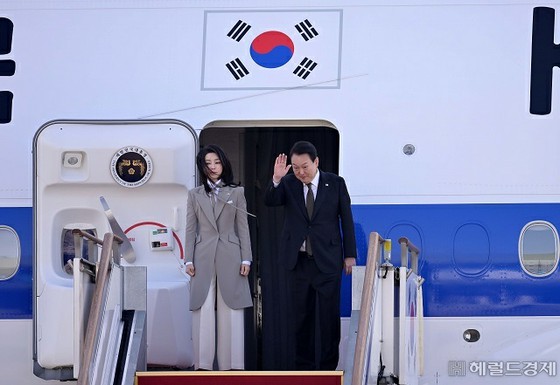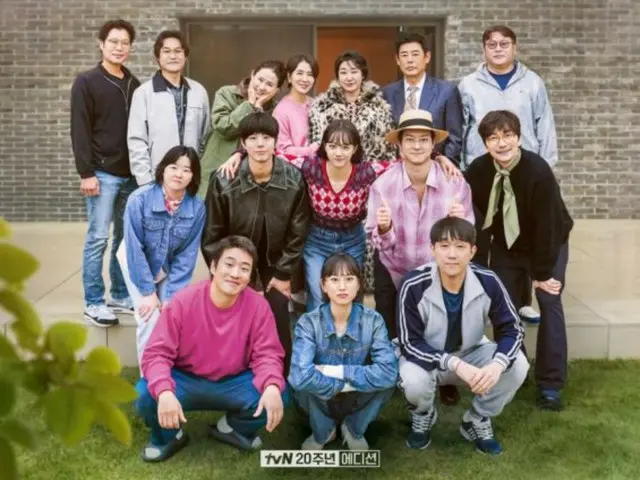 |
President Yoon's visit to Japan was set in light of the fact that the South Korean government announced on the 6th of this month a solution to the issue of former forced laborers, the biggest pending issue between Japan and South Korea.
In October 2018, the South Korean Supreme Court (Supreme Court) ordered former employers Mitsubishi Heavy Industries and Nippon Steel (former Nippon Steel & Sumitomo Metal Corporation) to pay compensation. However, the two defendants refused to fulfill the 1965 Claims Agreement between Japan and South Korea, as Japan had already settled the wartime reparations issue. For this reason, the plaintiffs have proceeded with the procedure of 'cash' in which the Japanese company sells its assets in South Korea and uses them for compensation.
Under these circumstances, the South Korean government announced on the 6th of this month a solution in which a South Korean foundation will take over the compensation of the defendant's Japanese company, which was confirmed by the Supreme Court judgment. Specifically, the "Foundation for Supporting Victims of Japanese Forced Mobilization" under the Korean government, which supports former forced laborers, will pay the plaintiffs an amount equivalent to reparations, including delayed interest. The fund will be covered by "voluntary donations from the private sector," and it is not assumed that the defendant's Japanese company will contribute funds. So far, 15 plaintiffs have won their lawsuits in Supreme Court rulings, and the damages are said to be about 4 billion won, including late interest. In addition, the lawsuits currently pending will be dealt with in the same way if the plaintiff's victory is confirmed.
President Yoon arrived in Japan on the morning of the 16th with his wife, Kim Gun-hee. At the prime minister's official residence, Prime Minister Kishida welcomed President Yoon and shook hands with him. Afterwards, a ceremony of honor was held at the Prime Minister's Office by the Ground Self-Defense Force guard of honor.
Afterwards, the two leaders held a summit meeting, and Prime Minister Kishida said at the meeting, "I am very pleased that President Yoon and I have the opportunity to open a new chapter in Japan-South Korea relations for the future." In response, President Yoon said, "Japan, which shares universal values such as freedom, human rights, and the rule of law with South Korea, is a partner that should cooperate on security, economics, and global agendas. The value of liberal democracy poses a serious challenge. In the face of this, the need for cooperation between the two countries is becoming more and more important."
Prior to the summit, North Korea launched an intercontinental ballistic missile (ICBM) this morning. During the talks, Prime Minister Kishida also discussed this matter, saying, "It is a clear provocative act and cannot be overlooked." President Yoon also said that North Korea's nuclear and missile development poses a major threat to the peace and stability of the international community, and that Japan and South Korea must cooperate closely to deal with it.
The two leaders held a joint press conference in the evening. At the press conference, Prime Minister Kishida said, "After the long winter, we welcomed the president of South Korea to Japan for the first time in about 12 years as a bilateral visit." We agreed to further develop Japan-South Korea relations based on the foundation of our relationship." The prime minister also said that the South Korean government's solution to the former forced labor lawsuit issue was "evaluated as an attempt to restore healthy relations between Japan and South Korea, which had been in a very difficult state." "The Japanese government has confirmed that it has inherited the positions of successive cabinets on historical recognition, including the Japan-Korea Joint Declaration announced in October 1998," he said.
President Yoon said, "This year marks the 25th anniversary of the Kim Dae-jung-Obuchi Joint Declaration (Japan-Korea Joint Declaration) announced in 1998 in order to face the past and develop a relationship based on mutual understanding and trust." "By inheriting the spirit of the declaration, we have overcome the unfortunate history of both countries and opened a new era of cooperation between South Korea and Japan," he said.
On the same day, the two leaders also agreed to resume “shuttle diplomacy,” which has been suspended since 2011.
In recent years, Japan-South Korea relations have been said to be at their worst since the end of World War II, but now they have made great strides forward to a new stage. Nonetheless, some plaintiffs on the former forced labor issue are expected to face difficulties in the future, as some plaintiffs oppose the solution proposed by the South Korean government and have indicated that they will not accept compensation from the foundation. In addition to the former forced labor issue, there are still various issues between Japan and South Korea that need to be resolved in the future. On the 16th, the day of the summit meeting, a rally was held in Seoul to criticize President Yoon's attitude toward Japan. With public opinion in South Korea split in half over the government's move to improve relations with Japan, the Yoon administration is required to work closely with Japan to steadily resolve issues one by one.
2023/03/22 13:14 KST


